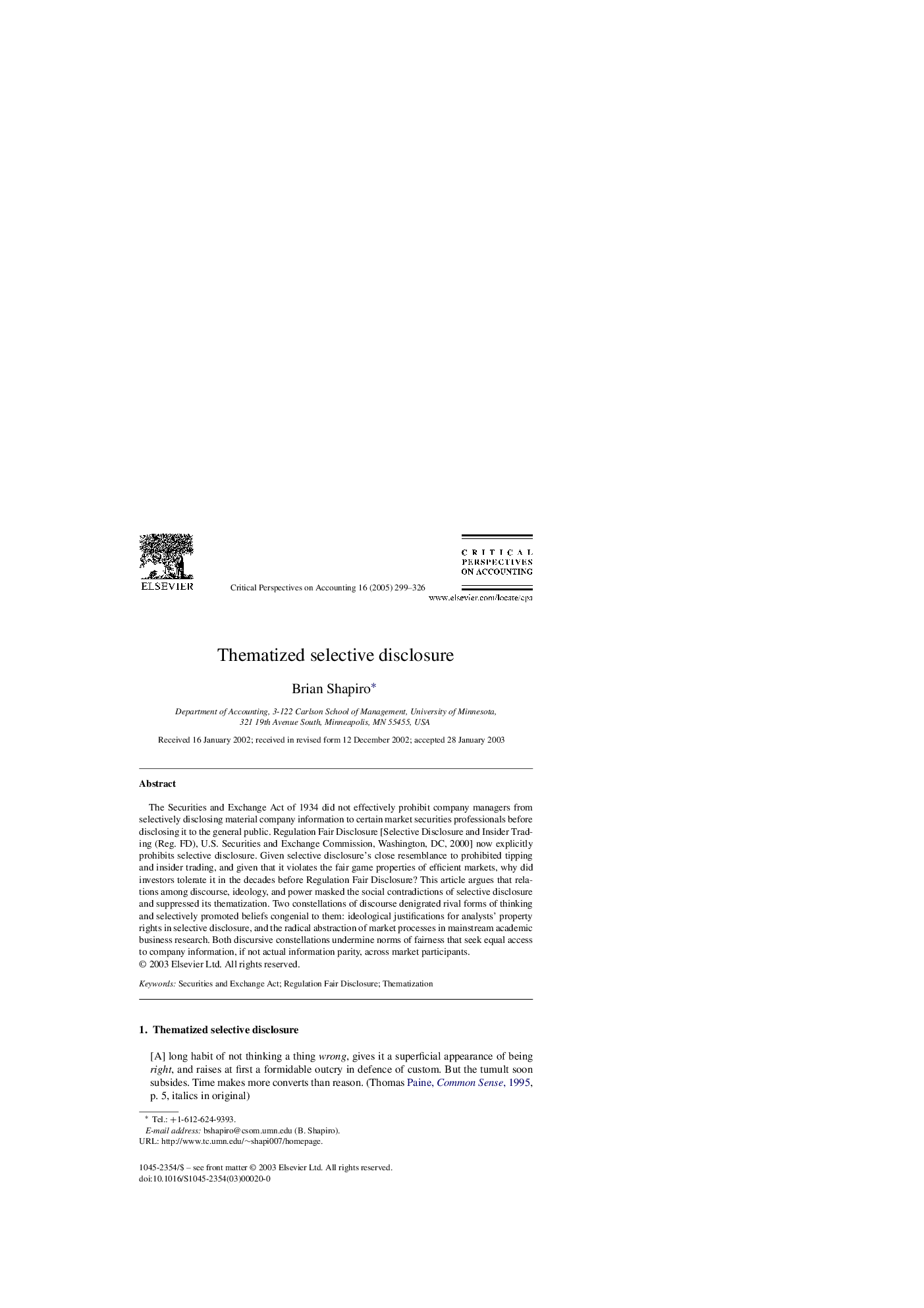| Article ID | Journal | Published Year | Pages | File Type |
|---|---|---|---|---|
| 10488665 | Critical Perspectives on Accounting | 2005 | 28 Pages |
Abstract
The Securities and Exchange Act of 1934 did not effectively prohibit company managers from selectively disclosing material company information to certain market securities professionals before disclosing it to the general public. Regulation Fair Disclosure [Selective Disclosure and Insider Trading (Reg. FD), U.S. Securities and Exchange Commission, Washington, DC, 2000] now explicitly prohibits selective disclosure. Given selective disclosure's close resemblance to prohibited tipping and insider trading, and given that it violates the fair game properties of efficient markets, why did investors tolerate it in the decades before Regulation Fair Disclosure? This article argues that relations among discourse, ideology, and power masked the social contradictions of selective disclosure and suppressed its thematization. Two constellations of discourse denigrated rival forms of thinking and selectively promoted beliefs congenial to them: ideological justifications for analysts' property rights in selective disclosure, and the radical abstraction of market processes in mainstream academic business research. Both discursive constellations undermine norms of fairness that seek equal access to company information, if not actual information parity, across market participants.
Keywords
Related Topics
Social Sciences and Humanities
Business, Management and Accounting
Accounting
Authors
Brian Shapiro,
